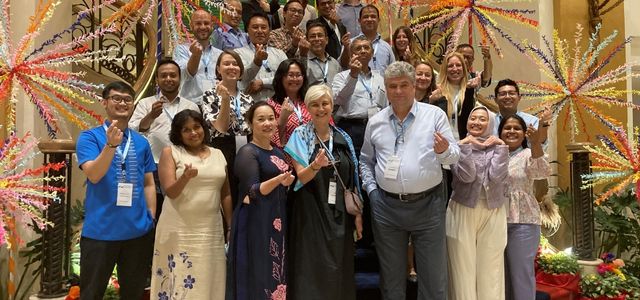Held in Jakarta-Indonesia from 20-22 June 2022, the workshop involved 26 participants, represented GWPO and the 3 regional staffs of South Asia, Southeast Asia, Central Asia and Caucasus, and representatives of partners from the region. The 1st day of the training involved the introduction of the new IWRM toolbox and the MSP Sourcebook and group activity for each topic. Participants were encouraged to use the example from the collection of case studies from the toolbox that was relevant to the scenario. As for the next group activity, the participants were allowed to give feedback on the zero drafts of the MSP Sourcebook’s table of contents.
The participants were divided into two groups from the second day onwards, one focusing on the IWRM toolbox learning lab and the other on developing the MSP Sourcebook through the Books Sprint method. Former GWP Global Office Staff Molly Robbins and Jeroen Warner the Professor from the Wageningen University (WUR) acted as the facilitators for the development of the MSP Sourcebook, whilst Gergana Majercakova (MEAL Lead) and Laurent-Charles Tremblay-Lévesque (IWRM & Knowledge Management Specialist) lead the discussion on the IWRM toolbox discussion.
The rest of the 2 days for the Toolbox group focused on developing practical and compelling Toolbox Learning Labs activities based on the water governance challenges faced by the respective regions and the countries in the groups. In addition to that, for the next exercise, the participants were asked to map the potential communities and design the appropriate content for each community of practice that was discussed. Meanwhile, the MSP Sourcebook group focused on writing the content of the book. Participants were divided according to the number of chapters and each group was allowed to use the material that had already been developed for the MSPs for Improved Water Governance online course and including their own experience as water experts (tacit knowledge).
By the end of the workshop, the participants acknowledged the development of the new IWRM Toolbox and will ensure to utilise it as a reference for developing new projects and as a learning place through the community of practice. (AW)
